Lord Dunsany’s Time and the Gods: Conclusion
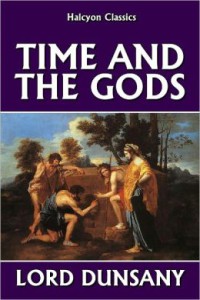 Bill Ward and I finished the last four stories in Lord Dunsany’s Time and the Gods last week, and we’re taking a final look at the collection today.
Bill Ward and I finished the last four stories in Lord Dunsany’s Time and the Gods last week, and we’re taking a final look at the collection today.
Howard: Looking through our reviews I find that our opinions were almost always in accord about the stories, although there were a few differences earlier on. I wonder if that’s because the stories in the second half tended to be either exceptional or simply sort of “meh.” Likely, one of the reasons we’re friends is that we have similar tastes.
Bill: I think that’s exactly it, the stories in the second half contained the weaker pieces, although looking back at some of my notes a few of the stories may have grown on me a bit. The Dunsany fatigue was setting in for both of us — we’ve being reading and writing about him for months now — just as we started the weaker second half of a tightly themed anthology.
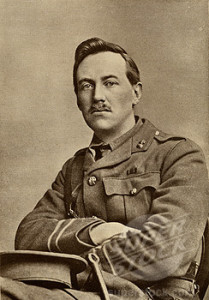 That of course is one of the perils of having a strong style and theme, the lack of variety made things feel a bit monotonous, though this is monotony punctuated by beauty and brilliance. I suspect our reactions to some of these stories would be (and will be) much improved under a different context. Dunsany’s rich style is a wonderful break from a cleaner or more straightforward style that characterizes the majority of fiction, but the flip side of that is it isn’t something you’d want a steady diet of necessarily, just as one doesn’t want to eat cheesecake for dinner every night.
That of course is one of the perils of having a strong style and theme, the lack of variety made things feel a bit monotonous, though this is monotony punctuated by beauty and brilliance. I suspect our reactions to some of these stories would be (and will be) much improved under a different context. Dunsany’s rich style is a wonderful break from a cleaner or more straightforward style that characterizes the majority of fiction, but the flip side of that is it isn’t something you’d want a steady diet of necessarily, just as one doesn’t want to eat cheesecake for dinner every night.
Howard: That’s fairly said. It’s just SO rich. I think the lack of characters who were more than archetypes began to wear on me. I have the same issue when I’m reading too many tales from the Arabian Nights or the Shahnameh in a row. No matter how much I enjoy the mythic aspects or lovely prose I have to go read something else or I begin to weary of the text and miss things. I’m afraid that by the time I reached the end of the collection I was more interested in finishing it than analyzing it.
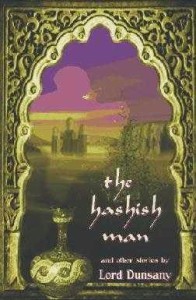 Bill: I hate dwelling on this, and I suspect you do as well. I think, for both of us, our Dunsany fatigue came as a shock, which is why we’ve spent so many words trying to analyze it. A lot of words, too, to explain that, even though we got a bit tired of it, we both recognize Dunsany as a giant among giants. Even at his “worst,” he’s good. At his best, he’s in a class by himself. I think it says a lot about an author that you can get burned out on him and still look forward to reading him again — I’ll be reading and rereading him for the rest of my life. I just won’t be doing it every week for the rest of my life!
Bill: I hate dwelling on this, and I suspect you do as well. I think, for both of us, our Dunsany fatigue came as a shock, which is why we’ve spent so many words trying to analyze it. A lot of words, too, to explain that, even though we got a bit tired of it, we both recognize Dunsany as a giant among giants. Even at his “worst,” he’s good. At his best, he’s in a class by himself. I think it says a lot about an author that you can get burned out on him and still look forward to reading him again — I’ll be reading and rereading him for the rest of my life. I just won’t be doing it every week for the rest of my life!
Howard: Right on. I do want to return, but probably one collection at a time is the way to go.
Bill: On the collection itself — I was never sure, early on, if Dunsany was aiming for a cohesive universe, or taking each story as it came. Much of modern fantasy, of course, is very much concerned with the act of world building, the secondary world act of creation. For a generation of writers and readers raised on media properties, RPG sourcebooks, and Tolkien clones, the idea that you need to have that big, consistent world is unquestioned and virtually sacrosanct. I think, in some cases, all this earnest world building has the undesired and paradoxical effect of making a story seem less real, perhaps by drawing too much attention to itself as an artifact of the creator. Many of these over-engineered worlds end up fencing themselves in by their need to spell everything out, and achieve the opposite of their intentions.
But Time and the Gods is all over the place in that respect, containing both reoccurring characters and connected narratives, and then much that is either unique to one story only or, in some cases, inconsistencies between stories. I certainly didn’t take careful enough notes to really pick up on and systematize those inconsistencies, if that’s even possible, but I got the gist enough to assume they were deliberate. Deliberate and, as it turns out, highly effective in terms of Dunsay’s theme — in the vast ocean of time, in the history of mankind and its myriad faiths, there can be no real consistency, no cozily built world where a stranger can pick up the rules quickly and then always feel that they know where they stand. In Time and the Gods, I had no idea what was around the next corner, and it felt so much closer to reading the true accumulated myths of the past than much of the modern stuff so clearly written by those who never got much past Gygax and Tolkien.
I suspect also that the King James Bible, clearly a major influence on Dunsany’s style in these stories, probably also provided some notion, unconscious or otherwise, as to how all these tales could coexist with one another in the face of internal contradictions. I’ve heard it suggested that the great works of religion may in fact be more powerful because of things like logical inconsistencies — that these encourage a person’s suspension of their critical mind, creating an even stronger emotional belief in so doing. This is a very close parallel to the fantasy writer’s goal to have his audience suspend disbelief.
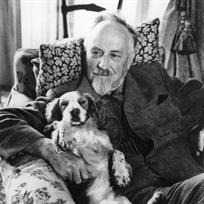 Deliberate or not, I think it’s a sure sign of Dunsany’s genius that he can tread the line between this kind of internal consistency and inconsistency. Perhaps it is completely accidental, but I really don’t think so. I think if Dunsany had cared nothing for being consistent, we would have seen many more contradictions that the collection would feel more like a mish mash. Ironically, its Dunsany’s theme and style that really serve to increase the sense of a cohesive, consistent world, moreso than the amorphous setting and distant, archetypal characters of Pegana do — but, nonetheless, there are gods, men, concepts, and names shared between these stories. The entire approach makes the world feel bigger than it is, mysterious and unpredictable. The rules can literally change from story to story, but somehow it all feels of a piece, an organic whole.
Deliberate or not, I think it’s a sure sign of Dunsany’s genius that he can tread the line between this kind of internal consistency and inconsistency. Perhaps it is completely accidental, but I really don’t think so. I think if Dunsany had cared nothing for being consistent, we would have seen many more contradictions that the collection would feel more like a mish mash. Ironically, its Dunsany’s theme and style that really serve to increase the sense of a cohesive, consistent world, moreso than the amorphous setting and distant, archetypal characters of Pegana do — but, nonetheless, there are gods, men, concepts, and names shared between these stories. The entire approach makes the world feel bigger than it is, mysterious and unpredictable. The rules can literally change from story to story, but somehow it all feels of a piece, an organic whole.
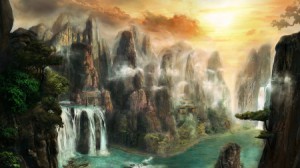 I am curious, going forward (eventually), and reading other tales set in Pegana, to see if and how the consistent and the inconsistent play a hand. Howard, as someone that has read more Dunsany than me, would you say more of these consistent, shared characters or places appear in other Pegana stories?
I am curious, going forward (eventually), and reading other tales set in Pegana, to see if and how the consistent and the inconsistent play a hand. Howard, as someone that has read more Dunsany than me, would you say more of these consistent, shared characters or places appear in other Pegana stories?
Howard: It’s more that they’re part of a consistent style, with occasional references to places or gods that he’s mentioned before. Someone, somewhere, has probably cross-indexed all this stuff, but I have to rely on my memory, and I still haven’t read all of Lord Dunsany’s work. As a matter of fact, I still haven’t made it all the way through the first of Lord Dunsany’s books, The Gods of Pegana. It has an even stronger “Old Testament” feel than the stuff we’ve read here, although it deals with multiple gods instead of one. I honestly found it a little hard going, moreso than Time and the Gods, although it’s been too long since I’ve read it to remember details. The six-book omnibus I picked up places it last even though it was the first written chronologically, perhaps in recognition of some more challenging prose.
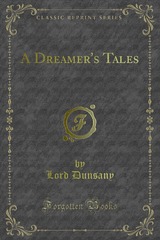 As far as this collection, my favorites remain “The Coming of the Sea,” “The Vengeance of Men,” “The Cave of Kai,” “Night and Morning,” “The South Wind,” and, of course, “The Journey of the King.” I’ve only changed opinions on one of hem, and that’s my elevation of “The South Wind” over some of the runner-ups, which I list below. Something about “The South Wind” really stuck with me, even though I originally only awarded it one star.
As far as this collection, my favorites remain “The Coming of the Sea,” “The Vengeance of Men,” “The Cave of Kai,” “Night and Morning,” “The South Wind,” and, of course, “The Journey of the King.” I’ve only changed opinions on one of hem, and that’s my elevation of “The South Wind” over some of the runner-ups, which I list below. Something about “The South Wind” really stuck with me, even though I originally only awarded it one star.
Runner ups were “A Legend of the Dawn,” “When the Gods Slept,” “The Sorrow of Search,” and “Usury.” That’s ten in all that I will at least revisit and six I would certainly include in a best-of collection. Despite our Dunsany fatigue, that’s a fair half of the book, more, really, given the length of “The Journey of the King.”
How do you divide your favorites and nearly so?
Bill: My choices are very similar to yours Howard, as usually seems to be the case. My favorites were “The Coming of the Sea,” “A Legend of the Dawn,” “The Cave of Kai,” “The Sorrow of Search,” and “The Journey of the King.” I’ve improved my already favorable opinion of ‘The Sorrow of Search” as I feel like it’s really stuck with me.
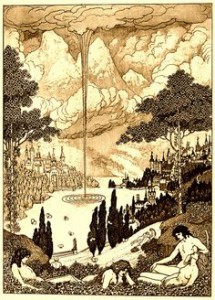 Overall, despite a few weak pieces, Time and the Gods was another great collection, the stand out stories here are as good as anything I’ve read by Dunsany. His great themes of time and loss, his bottomless well of invention, and his unique voice all serve to make these stories really feel like ‘typical’ Dunsany stories — these kinds of tales are exactly what I think of when I think of Lord Dunsany, and it seems to me he was born to write them.
Overall, despite a few weak pieces, Time and the Gods was another great collection, the stand out stories here are as good as anything I’ve read by Dunsany. His great themes of time and loss, his bottomless well of invention, and his unique voice all serve to make these stories really feel like ‘typical’ Dunsany stories — these kinds of tales are exactly what I think of when I think of Lord Dunsany, and it seems to me he was born to write them.
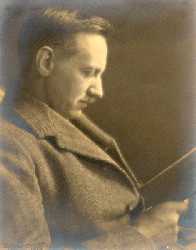
3 Comments